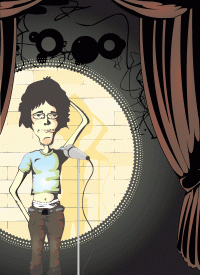Taking on SCOTUS' own 'buffer zone' | Ability as a witness can outweigh top expert credentials

The U.S. Supreme Court ruled Thursday that a Massachusetts law providing for a 35-foot buffer zone for protesters around abortion clinics violated the First Amendment.
But the court has its own buffer zone, and it’s getting attention in light of the ruling, the Wall Street Journal Law Blog reports. Protests are barred from the white marble plaza of the U.S. Supreme Court building. And the court is actually facing a legal challenge over it: In 2011, Harold Hodge was arrested for standing on a plaza and wearing a sign criticizing police treatment of blacks and Hispanics. A year ago, he won his case in federal court, ABC News reported at the time. The U.S. Court of Appeals for the District of Columbia Circuit will hear the government’s appeal in September, Law Blog reported.
Expert < Witness
In a trial, your expert’s skill as a witness could help your case more than his or her credentials as an expert.
There’s no “automatic swooning” among jurors “just because a lawyer they don’t know who is pushing an agenda is standing in front of them saying, ‘Behold—my expert. He’s an expert,’” trial consultant Rich Matthews writes at Juryology. Rather the opposite: Jurors are actually building resistance to us and the expert witness as we pitch them too soon.”
Members of a jury panel are usually selected because they don’t know anything about the subject matter of the case. The expert witnesses who are the best teachers are the ones who will help your case the most. While jurors “do not particularly like or trust expert witnesses, they do like people who can help them understand the material in a case.”

Image from Shutterstock.
Comics and copyright
The Legal Geeks’ Jessica Mederson appreciates how the NBC reality competition TV show Last Comic Standing legally protects its participant comedians from an ongoing problem: joke-stealing.
“Such behavior is unethical but difficult to stop,” Mederson wrote. “I’ve heard comedians talk about tricks they’ve used to prevent such theft from happening. For example, if a comedian with a reputation for stealing jokes enters a comedy club, the other comedians there will often flash the stage light to alert the comedian on stage, so that she doesn’t use her best material when a plagiarist is in the crowd.”
Comedians can sue when someone uses their copyrighted material—but never-recorded material a comedian uses at a club is not protected. “This is where Last Comic Standing comes in. By recording and broadcasting the comedians’ routines, their artistic creations are fixed and can therefore be protected.”
Setting the Pope straight
At the Volokh Conspiracy, George Mason University law professor Ilya Somin noted Pope Francis’ excommunication of Italian Mafia members on Saturday from the Roman Catholic Church. He also noted Pope Francis’ statements against the legalization of recreational drugs the day before.
But a more consistent point of view would be for Pope Francis to want recreational drugs legalized, Somin writes. Organized crime makes much of its money from recreational drug sales. “Few consumers would prefer to buy their drugs from the Mafia or the Taliban if they could instead get them from legal sources. Pope Francis justifiably denounces the Sicilian Mafia as an example of ‘the adoration of evil and contempt for the common good.’ But the drug policies he supports are a major cause of the evil that he condemns.”



